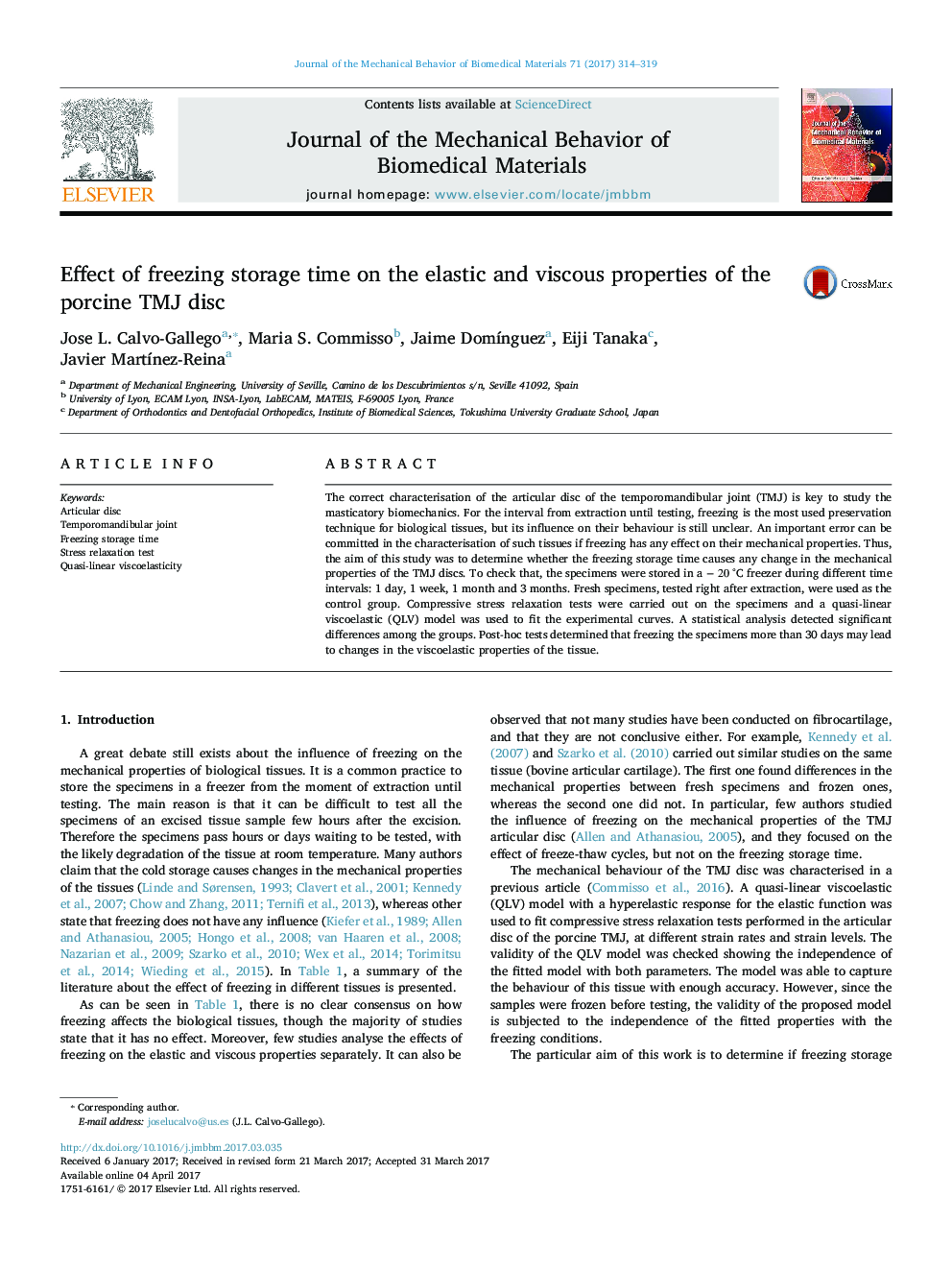| Article ID | Journal | Published Year | Pages | File Type |
|---|---|---|---|---|
| 5020596 | Journal of the Mechanical Behavior of Biomedical Materials | 2017 | 6 Pages |
Abstract
The correct characterisation of the articular disc of the temporomandibular joint (TMJ) is key to study the masticatory biomechanics. For the interval from extraction until testing, freezing is the most used preservation technique for biological tissues, but its influence on their behaviour is still unclear. An important error can be committed in the characterisation of such tissues if freezing has any effect on their mechanical properties. Thus, the aim of this study was to determine whether the freezing storage time causes any change in the mechanical properties of the TMJ discs. To check that, the specimens were stored in a â20 °C freezer during different time intervals: 1 day, 1 week, 1 month and 3 months. Fresh specimens, tested right after extraction, were used as the control group. Compressive stress relaxation tests were carried out on the specimens and a quasi-linear viscoelastic (QLV) model was used to fit the experimental curves. A statistical analysis detected significant differences among the groups. Post-hoc tests determined that freezing the specimens more than 30 days may lead to changes in the viscoelastic properties of the tissue.
Related Topics
Physical Sciences and Engineering
Engineering
Biomedical Engineering
Authors
Jose L. Calvo-Gallego, Maria S. Commisso, Jaime DomÃnguez, Eiji Tanaka, Javier MartÃnez-Reina,
